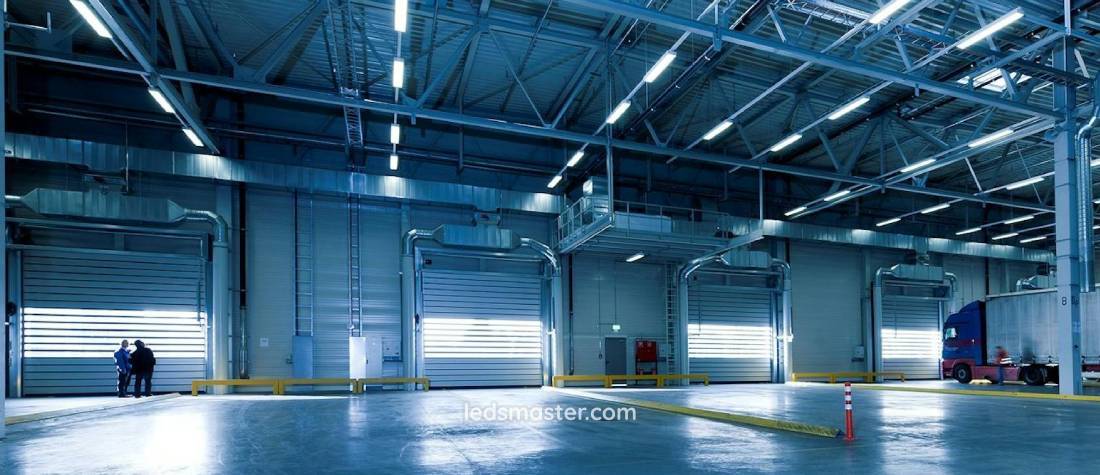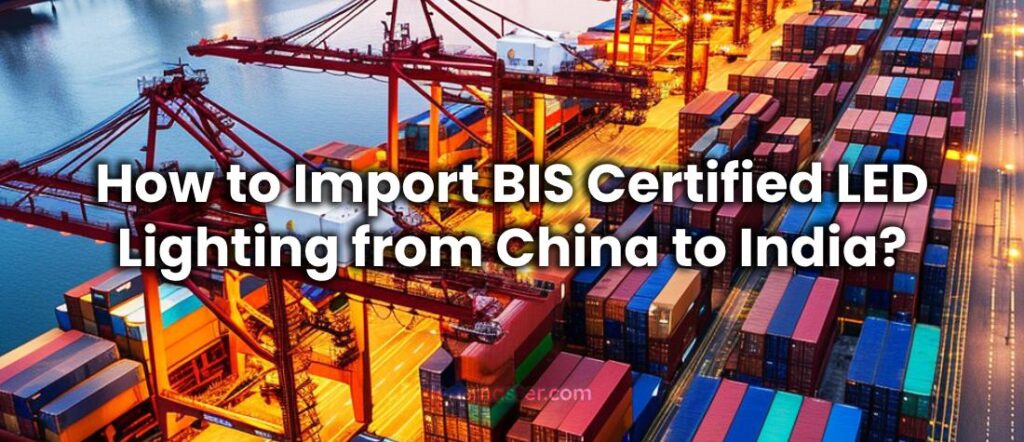Importing LED lights from China to India necessitates adherence to stringent BIS certification requirements, which have been mandatory since early 2018. This certification serves as a crucial regulatory prerequisite, ensuring that imported LED lights meet the prescribed quality and safety standards mandated by the Bureau of Indian Standards. To initiate the importation process, verifying the BIS certification status of the LED lights is paramount, as failure to comply can result in clearance delays or even rejection at customs. BIS certification entails a comprehensive evaluation process, encompassing various parameters such as product performance, durability, and adherence to technical specifications.
It’s essential to ensure that the certification covers the specific LED lighting products intended for importation, as variations in product specifications may warrant separate certification. Moreover, navigating the intricacies of customs clearance procedures requires careful attention to documentation and compliance with import regulations. Engaging with experienced import agents or consultants can provide invaluable assistance in navigating the complexities of the import process, ensuring smooth clearance and adherence to regulatory requirements. By prioritizing BIS certification and adhering to best practices for customs clearance, importers can facilitate seamless importation of LED lights from China to India, thereby ensuring compliance with regulatory standards and bolstering consumer confidence in the quality and safety of imported lighting products.
Table of Contents
ToggleMandatory BIS Certification for LED Lights
In September 2017, the Ministry of Electronics and Information Technology issued a notice adding 13 types of electronic products to the BIS mandatory certification system. LED lighting products were among the newly added items. All LED luminaires must have BIS approval or certification within six months of the notice (by February 2018); otherwise, the goods cannot be imported into India.It is important to note that BIS certification is dependent on the model number and the manufacturing origin. This means the model number and the manufacturing factory must match the certification. If another factory manufactures the same model, this model will need to apply for new approval if the factory is not BIS certified.
Types of LED lights that require BIS certification
There is a wide range of products designed for various applications. Flood lights, which are used to illuminate large areas such as sports fields, parking lots, and building exteriors, must be certified to ensure safety and quality. Road and street lights, essential for public safety and urban infrastructure, also require BIS certification to meet regulatory standards. Lighting chains, often used for decorative purposes in events and festivals, need certification to prevent electrical hazards. Recessed lights, commonly installed in ceilings for a sleek, modern look in homes and offices, must meet BIS standards for reliable performance. Additionally, other types of LED lighting, such as panel lights, track lights, and downlights, also require BIS certification to ensure they meet the necessary safety and performance criteria.

Importing LED Lighting without BIS Certification
The evolution of BIS certification requirements for LED lighting underscores a significant shift in India’s regulatory landscape, prompting Indian importers to consider the implications of compliance. Historically, prior to 2014, certification under the Bureau of Indian Standards was voluntary, affording manufacturers flexibility in their approach to product certification. However, with the implementation of mandatory BIS certification for LED lights in 2019, a new regulatory paradigm emerged, necessitating adherence to stringent quality standards for all imported lighting products. This shift reflects a broader commitment to safeguarding consumer interests and ensuring product safety within the Indian market.
The absence of a BIS exemption underscores the strict enforcement of certification requirements, mandating compliance for all imported LED lights regardless of their origin. The overarching objective of the BIS certification scheme is not merely regulatory compliance but rather the protection of end-users in India. By requiring mandatory certification, the scheme serves as a vital safeguard against the influx of substandard LED lights that could compromise consumer safety and quality standards. Considering the integral role of lighting in daily life and the potential risks posed by inferior products, inclusion within the BIS certification framework is both logical and imperative. Ultimately, the enforcement of BIS certification for LED lighting underscores India’s commitment to upholding rigorous quality standards and ensuring the well-being of its citizens.
Advantages of Importing LED Lights from China to India
Importing LED lights from China offers Indian buyers and electrical contractors a multitude of compelling advantages. Beyond mere cost savings, which are often significant due to China’s lower labor and production expenses, there’s an inherent efficiency in the manufacturing process that translates into competitive pricing without compromising quality. Chinese manufacturers have honed their production capabilities over years, leveraging economies of scale and technological advancements to produce LED lights efficiently and at scale. This efficiency not only drives down costs but also ensures a consistent supply of high-quality products.
China’s LED lighting industry benefits from a robust ecosystem of suppliers, enabling quick turnaround times and flexibility in meeting varying demands. Moreover, the sheer diversity of products available in the Chinese market allows buyers to find LED lighting solutions tailored to their specific needs, whether it’s for residential, commercial, or industrial applications. Ultimately, these combined factors make China an appealing destination for sourcing LED lights, offering Indian buyers and contractors a compelling combination of affordability, reliability, and choice in their lighting solutions procurement endeavors.
Cheaper LED Lights
In China, the labor costs and factory rents are substantially lower compared to other countries like the United States or European nations. This is primarily driven by the lower commodity prices in the Chinese market. The favorable cost structure in China allows manufacturers to produce LED lights at a relatively low price, making it feasible to import these products into other countries. Conversely, importing LED lights from the US or Europe can increase the overall costs by a significant margin, ranging from 150% to 300%. This cost differential provides a significant advantage to Chinese-made LED lights, making them a more attractive option for consumers and businesses looking to acquire these products at a more affordable price point.
Shorter Lead Time
Importing from China usually results in faster delivery times due to the spaciousness of Chinese lighting factories, which can accommodate more workers and increase production capacity. Additionally, China has a well-integrated supply chain for LED components such as chips, aluminum alloys, drivers, and heat sinks, all produced domestically. This eliminates the need to import parts from other countries, reducing manufacturing time. The advanced logistics infrastructure in China, including efficient transportation networks and ports, further supports quick and reliable shipping. Together, these factors ensure that LED lights can be produced and delivered to Indian buyers more rapidly than from other regions.
Higher Quality LED Lights
The cost savings resulting from lower labor and factory expenses in China translate into a notable advantage in acquiring higher quality LED lights within the same budget. In contrast, if the budget were allocated towards purchasing LED lights in the US, a substantial portion of it would inevitably be absorbed by labor and factory rent expenses rather than directly contributing to the quality or quantity of the LED lamps themselves. This discrepancy underscores the efficiency of China’s manufacturing landscape, where reduced overhead costs enable manufacturers to allocate more resources towards enhancing product quality, innovation, or scalability, ultimately offering consumers a better value proposition compared to markets with higher production expenses.
Frequently Asked Questions for Indian Importers
What is the Cost of Applying for BIS Certification for LED Lighting Fixtures?
The process of obtaining BIS certification for LED lights involves various costs, typically ranging from ₹50,000 to ₹60,000. This fee encompasses charges levied by both the government and the service provider facilitating the certification process. However, it’s essential to note that the total expenses can fluctuate based on several factors, with the choice of consultation company being a significant determinant. Different consultation firms may offer varying services, expertise levels, and additional support, consequently leading to differences in pricing.
Factors such as the complexity of the certification process, the scope of services required, and any supplementary assistance sought from the consultation company can all influence the final cost. Despite the variability, obtaining BIS certification remains a crucial step for LED light manufacturers looking to comply with quality and safety standards mandated by the Indian regulatory authorities, ensuring consumer confidence and market access within the country.
How to Apply for BIS Certification for LED Lights?
The process of applying for BIS certification for LED lights entails several sequential steps. Initially, the applicant must register an account on the BIS portal, furnishing essential details pertaining to the LED light manufacturing facility. Subsequently, sample products are dispatched to a BIS-approved laboratory for rigorous testing, conducted to verify compliance with the stringent standards set by the Bureau of Indian Standards. Upon successful completion of the testing phase and confirmation that the samples meet all stipulated criteria, the final step involves submitting the comprehensive test report to BIS for review and approval. This process ensures adherence to regulatory requirements and underscores the commitment to quality and safety standards mandated by Indian authorities for LED light products available in the market.
Conclusion
Importing LED lights from China to India involves strict adherence to BIS certification requirements, ensuring compliance with quality and safety standards mandated by the Bureau of Indian Standards. Verification of BIS certification status is crucial to avoid customs clearance issues. Engaging experienced import agents can facilitate the process. Despite challenges, importing from China offers advantages like cost savings and product diversity. India’s enforcement of BIS certification underscores its commitment to consumer safety and quality standards.
If you have any enquiries on how to import LED lights from China to India, or any issued regarding the BIS certification application, please feel free to contact us. Our email is beatus@ledsmaster.com

